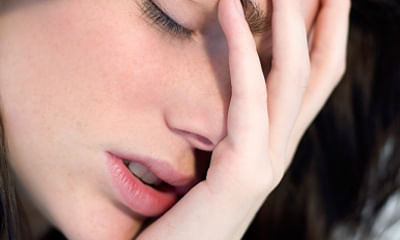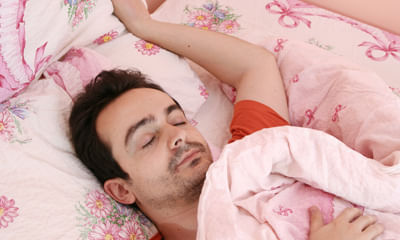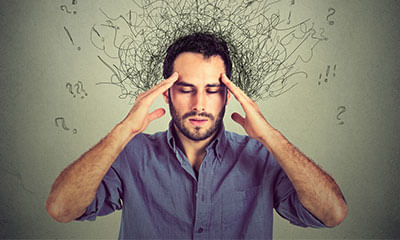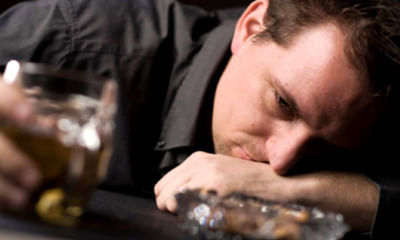Get the App
For Doctors
Login/Sign-up
About
Health Feed
Find Doctors
Health Packages
AllQ&AsTipsQuizzes
Fear Health Feed
Asked for female, 24 years old from Kolkata
Share
Bookmark
Report
Asked for female, 23 years old from Chennai
Share
Bookmark
Report
Health Query
Share
Bookmark
Report
Asked for male, 32 years old from Motihari
Share
Bookmark
Report
1.no alcohol
2. Reduce body weight 3. No smoking/ tobacco/drugs/ avoid pollution
4. Diet - no ghee/ butter, have mix of vegetable oils - mustard, til, ground nut, olive oil, have more green vegetables and fruits, have whole grain atta, no fried. Fast. Spicy / processed/ junk food. Less sugar, potato, rice. Less salt.
5. 30 mts brisk walk daily 6. Deep breathing exercise for 10 mts daily
7. Meditation daily for 10 mts. 6-8 hrs of sleep at night
8. Expose your body to sun for 1...more
2. Reduce body weight 3. No smoking/ tobacco/drugs/ avoid pollution
4. Diet - no ghee/ butter, have mix of vegetable oils - mustard, til, ground nut, olive oil, have more green vegetables and fruits, have whole grain atta, no fried. Fast. Spicy / processed/ junk food. Less sugar, potato, rice. Less salt.
5. 30 mts brisk walk daily 6. Deep breathing exercise for 10 mts daily
7. Meditation daily for 10 mts. 6-8 hrs of sleep at night
8. Expose your body to sun for 1...more
18 people found this helpful
Asked for Male, 32 years old from Delhi
Share
Bookmark
Report
1.no alcohol
2. Reduce body weight 3. No smoking/ tobacco/drugs/ avoid pollution
4. Diet - no ghee/ butter, have mix of vegetable oils - mustard, til, ground nut, olive oil, have more green vegetables and fruits, have whole grain atta, no fried. Fast. Spicy / processed/ junk food. Less sugar, potato, rice. Less salt.
5. 30 mts brisk walk daily 6. Deep breathing exercise for 10 mts daily
7. Meditation daily for 10 mts. 6-8 hrs of sleep at night
8. Expose your body to sun for 1...more
2. Reduce body weight 3. No smoking/ tobacco/drugs/ avoid pollution
4. Diet - no ghee/ butter, have mix of vegetable oils - mustard, til, ground nut, olive oil, have more green vegetables and fruits, have whole grain atta, no fried. Fast. Spicy / processed/ junk food. Less sugar, potato, rice. Less salt.
5. 30 mts brisk walk daily 6. Deep breathing exercise for 10 mts daily
7. Meditation daily for 10 mts. 6-8 hrs of sleep at night
8. Expose your body to sun for 1...more
100 people found this helpful
Asked for Male, 30 years old from Kolkata
Share
Bookmark
Report
You seem to be having anxiety disorder. Increase in bp is common in anxiety disorder. The medications nexito plus and zaptra are both ssris and work for anxiety, but ideally 2 different groups may be selected. I suggest you get a second opinion from an astute psychiatrist either in person or online. If bp continues to be more after control of anxiety, then we can consider medicine for hypertension. Good luck.
Asked for male, 37 years old from Mumbai
Share
Bookmark
Report
ND(Diploma in Naturopath), bachelor Of S...read more
Yoga & Naturopathy Specialist•Mehsana
There are rare chance to get infection induced by needle & syringe so please don't get panic.
Do some pranayama & relaxation exercise to relieve enxiety & fobia.
Take plenty of water & juices specially rich in vitamin c & antioxidant specially orrange, can suger juice, pineapple etc to remain energetic & hydrated moreover we offer free psycho social first aid counseling as well
so, you may talk just dialing our help line no. mobile (monday to friday 1 pm-2 pm)
take care
Do some pranayama & relaxation exercise to relieve enxiety & fobia.
Take plenty of water & juices specially rich in vitamin c & antioxidant specially orrange, can suger juice, pineapple etc to remain energetic & hydrated moreover we offer free psycho social first aid counseling as well
so, you may talk just dialing our help line no. mobile (monday to friday 1 pm-2 pm)
take care
46 people found this helpful
Asked for male, 2 years old from Gurgaon
Share
Bookmark
Report
Asked for male, 32 years old from Bangalore
Share
Bookmark
Report
1.no alcohol
2. Reduce body weight ifmover wt 3. No smoking/ tobacco/drugs/ avoid pollution
4. Diet - no ghee/ butter, have mix of vegetable oils - mustard, til, ground nut, olive oil, have more green vegetables and fruits, have whole grain atta, no fried. Fast. Spicy / processed/ junk food. Less sugar, potato, rice. Less salt.
5. 30 mts brisk walk daily 6. Deep breathing exercise for 10 mts daily
7. Meditation daily for 10 mts. 6-8 hrs of sleep at night
8. Expose your body t...more
2. Reduce body weight ifmover wt 3. No smoking/ tobacco/drugs/ avoid pollution
4. Diet - no ghee/ butter, have mix of vegetable oils - mustard, til, ground nut, olive oil, have more green vegetables and fruits, have whole grain atta, no fried. Fast. Spicy / processed/ junk food. Less sugar, potato, rice. Less salt.
5. 30 mts brisk walk daily 6. Deep breathing exercise for 10 mts daily
7. Meditation daily for 10 mts. 6-8 hrs of sleep at night
8. Expose your body t...more
Health Query
Share
Bookmark
Report
Book appointment with top doctors for Fear treatment
View fees, clinic timings and reviews
Ask a free question
Get FREE multiple opinions from Doctors
posted anonymously


















